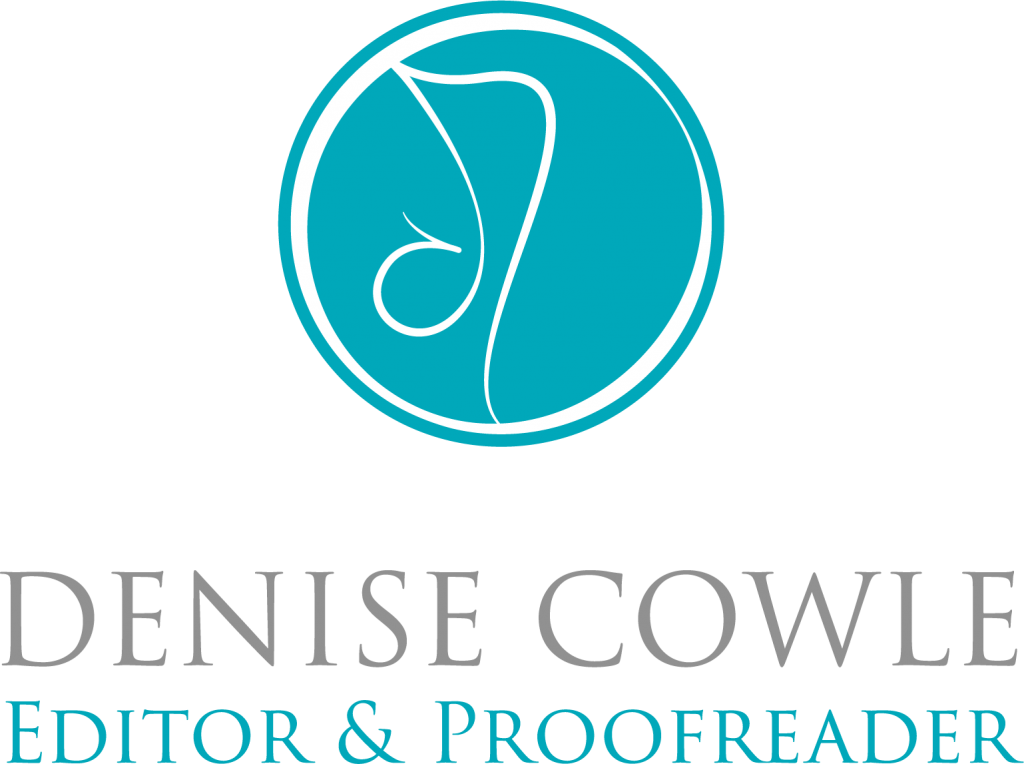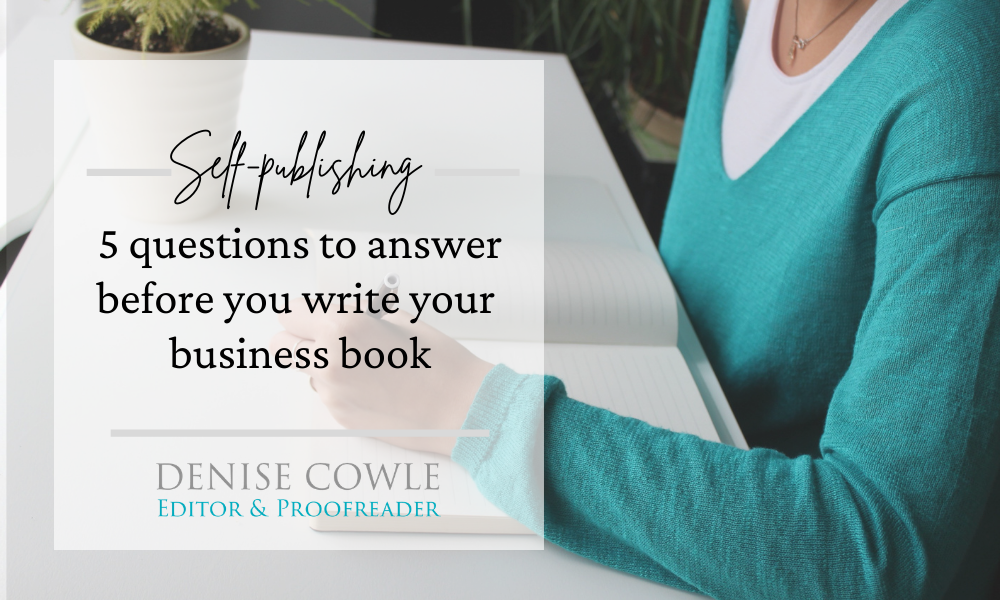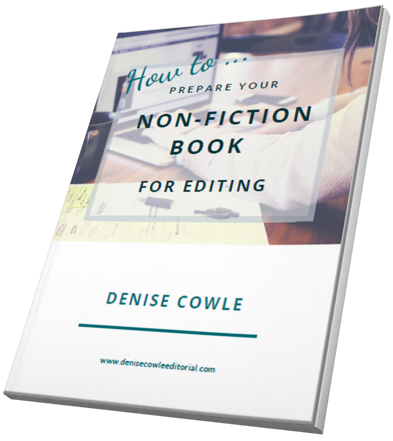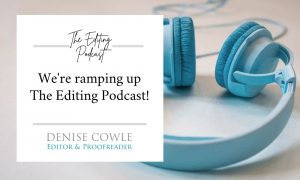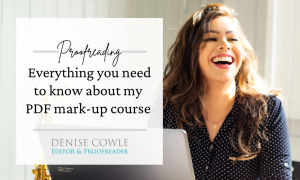Whether you’re the CEO of a global corporation, a small business owner in a thriving niche market, or an entrepreneur developing original ideas, writing a business book might be something you’re considering as part of your strategy.
You may already have a solid income from speaking engagements but would like to boost it further by selling a book alongside them.
You might have a successful training business and want to increase your reach by creating a written version of your courses.
Or you may have a really great idea that’s a unique take on conventional thinking in your industry, and you’d love to give it a good shake!
Whatever your motivation for deciding to write a business book, there are some things to consider before you open up a blank document and start typing.
By answering these five questions you’ll have a much better idea of whether you’re actually ready to make a start, or whether you have to do a bit more work in some of these areas to give your book the best chance of success.
1 Are you writing regularly?
If you’re not writing regularly, you need to start now. How else are you going to develop your skills? Ask any author who has published a book and they’ll tell you it’s a marathon, not a sprint! So you need to get in shape and train for the big event.
Practice makes perfect
Get used to creating content. Develop the habit of writing every day if you can. Even if it’s not directly related to the subject of your book, by writing regularly you will develop the skill of organising the thoughts swirling in your head and articulating them in words.
Like anything else, the more you practise the easier it will become and the better you will get. For some, the gap between what’s in their head and what they put into words can seem enormous, and it can be immensely frustrating when they first start writing.
However, if you flex your writing muscles regularly on a variety of formats, whether that’s personal journalling, blog articles or free content such as guides for your business, you will become more comfortable with the process when it comes to marshalling your thoughts for writing a business book.
Find your voice
When you first start writing, it may feel a bit stilted and unnatural. It can be hard to convey your own personality through words, and you may find yourself subconsciously mimicking the style and tone of other writers.
By writing regularly you will take the time to develop your own style and find your ‘voice’. What tone will resonate best with your intended audience? Warm and informal? Or perhaps a more academic tone to convey your authority will suit your business book better.
Sometimes, in an effort to lend our words credibility, we can resort to more formal language and constructions. This can make our written words sound very different to how we speak. If you’re writing a business book that you plan to sell at your speaking engagements, don’t disappoint your readers when they read your words on the page by sounding nothing like who they saw on the stage! Use the same style and tone in your writing so your readers recognise you as the engaging speaker that prompted them to buy the book in the first place.
Test concepts and get feedback
If you’re planning on writing a business book about your unique angle on an aspect of your industry, or your fantastic new approach to an age-old issue, sound out your audience first.
Blog articles can be an extremely useful platform for testing concepts and getting feedback. You may find that your great idea doesn’t get the reception you thought it might. It’s much better to find that out after investing a few hours writing a blog post than when you’ve published a whole book based on the premise.
Take one specific aspect of your book’s concept, write a blog article about it and then – crucially – listen to your audience’s reactions to it. Are they raving about how useful it is? Then you’re on the right track. If you get silence, or negative feedback, it’s time to take that on board. Does your content need rewriting to convey your message more clearly, or is the content itself the issue? Perhaps you need to rethink the concept entirely, or maybe it just needs some minor adjustments.
And don’t forget to take any opportunity you can to speak about the subject of your business book. Articulating your ideas in front of an audience and gauging the responses – whether that’s speaking in front of small groups, at large events, or on relevant podcasts – allows you to try out and refine your ideas before committing them to the written word.
Get used to writing long-form content
A book does not spring fully formed from your keyboard! There is a big difference between writing a 750-word blog post and a 60,000-word business book. 59,250 words, to be exact!
Practise expanding your writing to explore a topic more deeply. This may involve considerable thinking time before you can fully articulate your ideas and opinions, and it should certainly involve researching the topic so that you have a thorough understanding of it.
Taking your thoughts on a subject and relating it to other people’s approaches, opinions, or research, is critical to having a well-developed book. How you distil these thoughts into writing can make or break your book. By writing longer opinion pieces and in-depth articles explaining your approach or processes, you can bridge the gap between short, pithy blog articles and a fully fledged book.
And the content of these articles can ultimately find its way into your business book, although of course it should offer the reader even more than your articles do.
2 Do you have a niche target audience for your business book?
Who are you writing a business book for?
If your answer to this is ‘everyone in business’ then you need to take a pause and think some more. It’s unlikely that one book will ever appeal to everyone, so get specific.
Think carefully about the main message of your book. Who will be best served by reading it? Is it, for example, people with no understanding of how SEO works? People who need to learn how to automate their sales processes better? Solo business owners who have to manage everything in their business and don’t know where to start?
You can see how a book about learning how to develop a staff training programme won’t be relevant to at least one of those examples. The more specific you can be about your intended audience, the better.
Do your research
Look at what’s already been written for your audience. Are they well-served with books on the subject you want to write about? If so, in what way is your book different? How is it going to stand out from the crowd? You don’t want to spend months crafting a book only for it to sink without trace because it gets lost among all the others.
What sells well for your intended audience? Do your research. Check out bestseller lists to see what’s popular in your niche. What writers appeal to them? What topics are they excited to read about?
Pay attention to what’s being said on social media. People love to share when they’ve enjoyed a book, or if they find a message that particularly resonates with them.
Equally, listen when people in your audience give negative reviews of business books. What didn’t they like? Was it the content, or how it was presented? The tone? Or was there too much repetition and padding in the book, despite the message being a good one? These are all lessons you can use to help shape what will make your book ideal for the niche audience you’re writing for.
So think carefully about your audience and where you think your book will fit in. Have you spotted a gap in the market, where people are asking questions about a subject that you can answer? Has no one else has written about it? That’s where your focus should be. Or maybe what you want to write about is not a new problem and there are plenty of books out there already. How can you present your information in a new and relevant way that will capture your audience’s interest?

3 Do you have an audience who’ll buy a business book from you?
Marketing your business book does not start when the writing ends. You must promote your book while you’re still writing in order to create interest and maximise sales on launch. So the question is, do you have an audience ready and willing to buy from you?
You may already have an audience warmed up and excited to get their hands on your book as soon as you tell them you’re writing it. If so, that’s fantastic, but don’t just assume they’ll be there waiting with their money on publication date. Keep up their interest with information about how the process is going. Offer them exclusive snippets of the content, and perhaps set up pre-orders so you can gauge how many copies you’ll need to print.
If you don’t have an audience that you’re in direct conversation with, you need to get started! Build an email list if you don’t already have one, and encourage people to sign up to get information about your book. Offer some free content related to your book – perhaps a cheat sheet or checklist – to encourage people to sign up.
And of course use whichever social media platforms your target audience hangs out on. Engage with them and raise awareness of the amazing business book you’re writing!
If you run training courses or have regular speaking engagements, these are all opportunities to spread the word. But don’t forget to build that list!
4 Do you have the credibility/authority to write a business book?
How well do you know your subject?
Your readers will expect you to have in-depth knowledge and be able to write with authority. This doesn’t mean that you need to have formal qualifications to write about a subject. In fact, with business books the self-made expert can be a compelling author, as their story can be relatable for some readers, who may feel a connection to the author’s experiences that they don’t have with other writers.
So ask yourself what experience you have in business that you can draw on, and how can you weave this into your book. Whatever you’re writing about, you need to be able to show how it’s been part of your business journey.
Can you use case studies and storytelling to bring your message to life? People will want to see how your theories translate into practice. Showing the ‘how’ rather than telling people about it is far more compelling for your readers.
As mentioned in points one and two, are you writing and speaking regularly, getting feedback, and refining and deepening your knowledge? The process of writing a book should involve deepening your understanding of your subject so that you can support your position with well-researched explanations. This may include addressing opposing schools of thought or different approaches.
Your audience will respect your willingness to acknowledge other views, even if you don’t agree with them. And demonstrating an understanding of alternative methods or views can help you explain why your approach is better for your reader. Again, show the differences rather than telling your reader about them.

5 Is your book’s message on or ahead of the curve?
Finally, are you current in your knowledge? Business practices and trends can change very quickly, so you may have to work fast if you’re writing a business book that plans to capture the zeitgeist.
Do you have an original answer to a common problem, or a new development that will lead the way in your field? What is it about you or your message that will stand out?
Why would anyone buy your book now? If you’re writing about a subject that is already filling the bookshelves you may already be too late.
As I said in section two, have you done your research and tested your ideas? You may discover that people are already familiar with what you want to write about and are not especially interested in another book on the topic.
So there you go. Five questions that should set you on the track to writing your business book. If this sounds like a lot of work then you’re right, it is! But you owe it to your future readers to do the work and create a book that delivers on its promises.
Good luck!
If you’re writing a business book, find out more about how my editing services for independent authors can make it even better.
To get regular advice on editing and writing, sign up for The Editor’s Note, the monthly dispatch from my desk, below.
